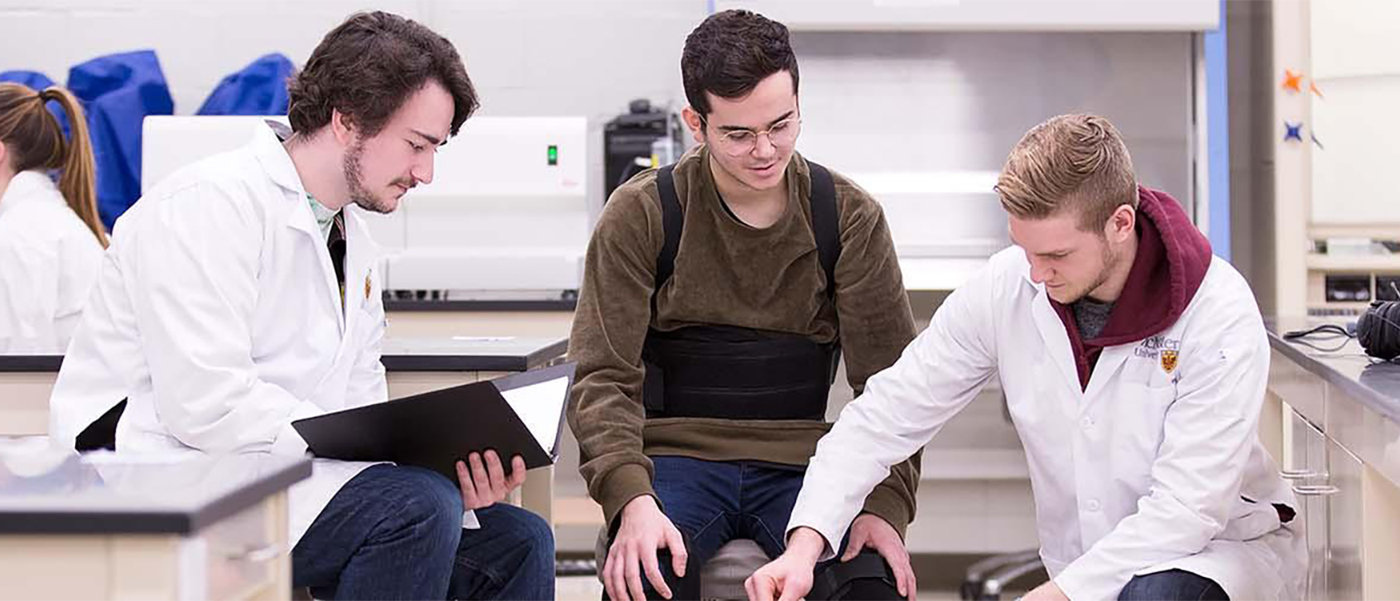Learning Spaces
From interactive classrooms to interdisciplinary laboratories, our facilities provide students exciting opportunities to engage in and explore science.
Expandable List
Our Living Systems Laboratory is designed for interdisciplinary experimentation around a central theme of aging. Our students benefit from hands-on experience studying phenomena from neuromuscular junctions to the association between chromosome telomere length and cellular aging to longevity mutations in roundworms. Our goal is to promote curiosity, exploration and continued enjoyment of learning.
Our Medical Radiation Sciences Program has expansive and up-to-date health sciences imaging and treatment laboratory facilities located on campus at the Institute for Applied Health Sciences. Laboratories contain fully functioning diagnostic ultrasound and x-ray suites, as well as film and digital image processing equipment. Students gain direct hands-on experience, using state-of-the-art equipment in a safe and comfortable simulated setting. Technical, communication and patient care skills are developed under direct supervision from content experts. Level II and III students work on care-based imaging scenarios that bridge the gap to clinical applications.
The Integrated Science Laboratory is designed to host experiments from areas ranging from physics to neuroscience to biology and geology. Students explore the interaction and connections among many scientific disciplines through research and experimentation. Its open-concept design encourages peer-to-peer learning while providing a safe environment for teaching assistants to oversee all student activities. The space also features ductless Green fume hood technology and is fully accessible.
The iStudy space is located on the third floor of the Thode Library for Science and Engineering. It’s a unique study space for Honours Integrated Science students, facilitating group research project work and collaboration with work tables, large white boards and a resource library. Access to this space catalyzes the cross level (Level 1 to 4) learning community found among students in the iSci Program.
The Applied Learning Laboratory for Undergraduate Research Excellence (ALLURE) is home to team-based research projects in the fields of genetics, cellular and molecular biology, cellular physiology and systemic physiology. There, students from the School of Interdisciplinary Science and Department of Biology tackle real-world problems while developing strong critical thinking and research skills – valuable assets for any future career. Research projects are supervised by Dr. Kim Dej (Nematode Diversity Project) and Dr. Rosa da Silva (The Stink Bug Project) in collaboration with other research faculty at McMaster University. The ALLURE Laboratory is also used to enable the design and testing of innovative and exciting new undergraduate laboratories and modules.
The McMaster Teaching & Community Garden (MTCG) is a campus facility for course labs and research, but also a platform for outreach through workshops on urban gardening and sustainability. Created by Dr. Chad Harvey and Kate Whalen from the Office of Sustainability in 2012. The MTCG was funded by grants written during ISCI 3IE1-Interdisciplinary Experiences, by two Integrated Science students, Julianne Bagg and Emily Taylor (Class of 2013).

